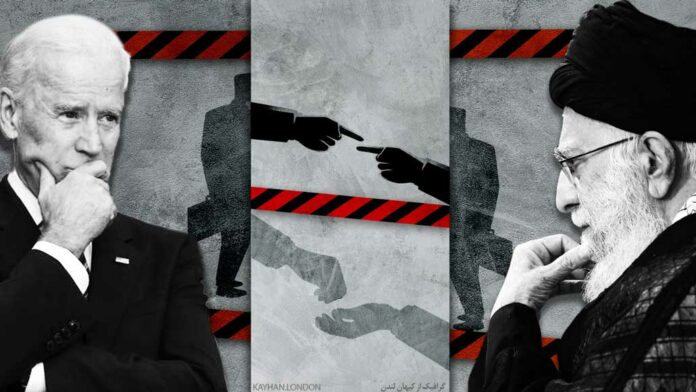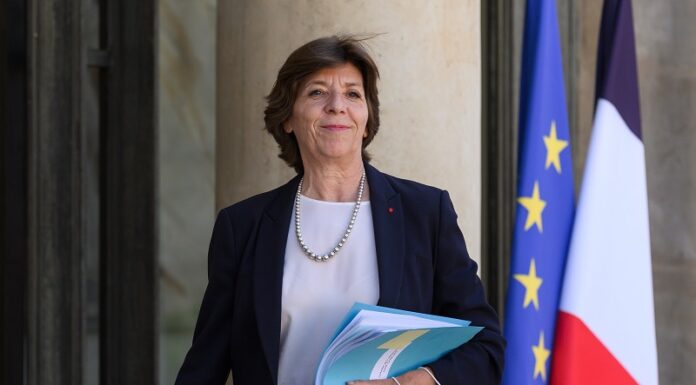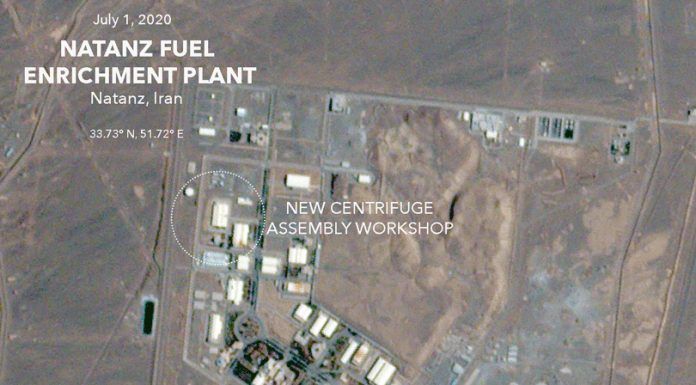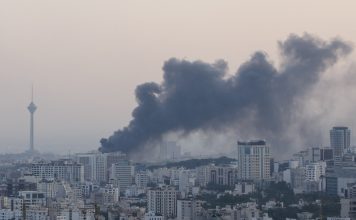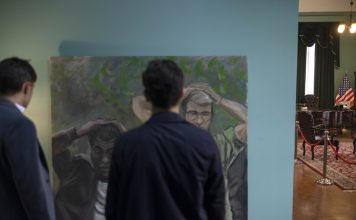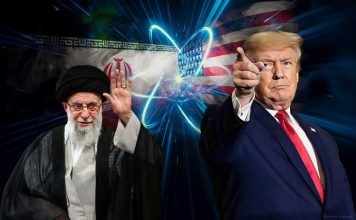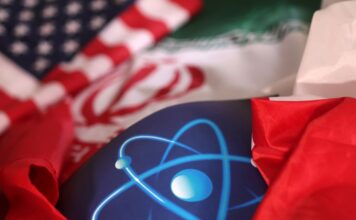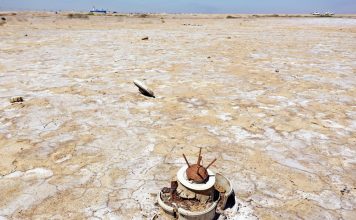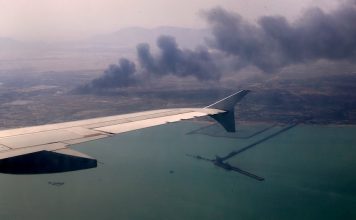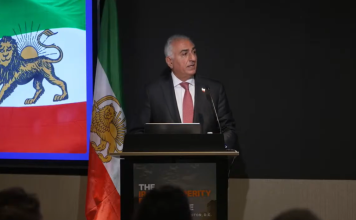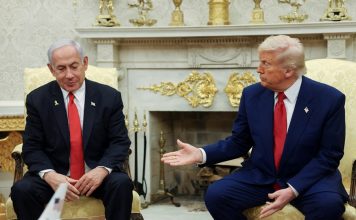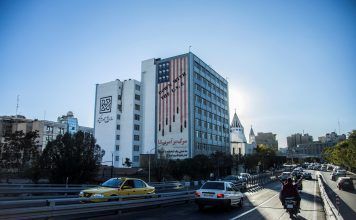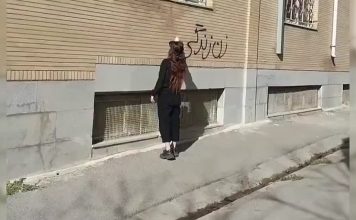By Ahmad Rafat
For the past few months, European and American officials have warned that the “window of opportunity” for reaching a new nuclear deal with Iran is “closing fast.”
Speaking to French lawmakers on July 12, the new French Minister for Europe and Foreign Affairs, Catherine Colonna, said: “There is still a window of opportunity for Iran to decide to accept an accord which it worked to build, but time is passing.”
“If Iran kept on its current trajectory, it would be a threshold nuclear arms state,” Foreign Minister Colonna warned. “Tehran must realize this. The U.S. mid-term elections would make it harder to seal a deal.”
“The “window of opportunity will close in a few weeks. There will not be a better accord to the one on the table,” she added.
The “window of opportunity” to strike a new nuclear deal with Iran will be open for only a few months until the mid-term U.S. elections on Nov. 8. So far, efforts to reboot the deal are faltering.
The P5+1 (Britain, France, Russia, China, and the U.S. plus Germany) facilitated the 2015 Joint Comprehensive Plan of Action (JCPOA), the Iran nuclear deal. However, the U.S. unilaterally withdrew from the deal in May 2018.
Since taking office in January 2021, U.S. President Joe Biden and his administration have tried to reboot the JCPOA. For more than a year, the U.S. has been involved in meetings in Vienna between the original signatories of the JCPOA and Iran, hoping to strike a new nuclear deal, but so far, the negotiations have yielded no concrete results.
Keeping the “window of opportunity” open is the Islamic Republic’s preferred policy. It means that the Iranian President Ebrahim Raisi and his government can continue negotiating with no time restrictions, enabling Iran to speed up its nuclear program.
There is little chance of rebooting the 2015 JCPOA or reaching a new limited nuclear deal with Iran, given that the White House cannot meet a certain number of Iranian demands. These include a guarantee that a future American president will not withdraw from the agreement; that the U.S. removes the Islamic Revolutionary Guards Corps (IRGC) from its Foreign Terrorist Organization (FTO) list; and that the U.S. lifts all sanctions on economic and military entities linked to the IRGC.
ANALYSIS: IRGC Is Main Obstacle in Talks to Revive Iran Nuclear Deal
Iran will face massive challenges on the world market even if it struck a deal with the U.S. that lifted the economic sanctions reimposed on the country after Donald Trump pulled out of the JCPOA.
On Feb. 21, 2020, the Financial Action Task Force (FATF) blacklisted Iran for failing to enact the Palermo Convention, the Combatting of Financing of Terrorism (CFT), and the Anti-Money Laundering (AML) recommendations.
The FATF is an intergovernmental organization founded in 1989 on the initiative of the G7 to develop policies to combat money laundering and terrorism financing. It operates under the auspices of the Organization for Economic Co-operation and Development (OECD), an intergovernmental economic organization with 36 member countries, founded in 1961 to stimulate economic progress and world trade.
The United Nations Convention against Transnational Organized Crime (UNTOC, also called the Palermo Convention) is a UN-sponsored multilateral treaty against transnational organized crime signed in 2000.
The Majlis (Iranian Parliament) passed the Palermo Convention, the CFT, and the AML nearly three years ago, but the Guardian Council rejected them. The bills were subsequently sent to the Expediency Council more than two years ago. It has yet to issue its ruling.
The FATF’s decision to blacklist Iran excludes the country from international financial banking and financial systems.
Shortly after the U.S. withdrew from the JCPOA in May 2018, Iran stopped complying with its commitments under the deal and sped up its nuclear program.
According to a report by the International Atomic Energy Agency (IAEA), seen by the Reuters news agency, Iran has used advanced centrifuges to speed up its uranium enrichment program.
“Iran has escalated its uranium enrichment further with the use of advanced machines at its underground Fordow [Fuel Enrichment] plant [in the northern province of Qom] in a setup that can more easily change between enrichment levels; the U.N. atomic watchdog warned,” Reuters said on July 9, citing the IAEA report.
“On July 7, 2022, Iran informed the Agency that, on the same day, it had fed the aforementioned cascade with UF6 [uranium hexafluoride gas] enriched up to 5 percent U-235 [uranium-235],” the report explained.
“On July 9, 2022, the Agency verified that Iran had started feeding UF6 enriched up to 5 percent U-235 into the cascade of 166 IR-6 centrifuges with modified sub-headers for the declared purpose of producing UF6 enriched up to 20 percent U-235,” the reported added.
According to IAEA’s nuclear experts, the new generation of centrifuges were assembled at Natanz Nuclear Facility, in the central province of Isfahan, in March of this year. Iran announced last year that it enriched uranium to 60 percent. Experts believe it will reach the 90 percent level soon.
A diplomat representing a European country at the IAEA told Kayhan Life: “The Russian invasion of Ukraine gave Iran an excuse to delay an agreement on its nuclear program. Moscow supports Iran’s delay tactics, because it considers any agreement between Tehran and the West in the current climate not in its best interest.”
“The Islamic Republic has concluded that the EU and the U.S. will not lift any sanctions until the Ukrainian conflict has ended. They will not act on any plans or deals,” the diplomat added.
In a July 2 interview with the British weekly The Spectator, former U.S. Secretary of State Henry Kissinger (who was in office from 1973 to 1977) said: “The trouble with the existing nuclear talks is that it is very dangerous to go back to an agreement that was inadequate to begin with — to modify it in a direction that makes it appear more tolerable to the adversary.”
“So I will have all the concerns I had with the original agreement. I have not seen the terms yet, but there is no alternative to eliminating an Iranian nuclear force,” Kissinger added. “There is no way you can have peace in the Middle East with nuclear weapons in Iran, because before that happens, there is a danger of pre-emption by Israel.”
“Israel cannot wait for deterrents. It can afford only one blow on itself. That is the inherent problem of the crisis,” Kissinger noted.
Most European leaders believe the West can only persuade Iran to halt its efforts to develop nuclear weapons through negotiations.
In his recent meeting with French President Emmanuel Macron on July 7, the new Israeli Prime Minister Yair Lapid said: “The current situation cannot continue as it is. It will lead to a nuclear arms race in the Middle East, threatening world peace.”
Macron argued that the only way forward was through negotiation.
“I would like to remind you again of our desire to conclude the negotiations on a return to respect for the JCPOA as soon as possible,” Macron added.
“We agree with Israel that this agreement will not be enough to contain Iran’s destabilizing activities, but I remain more convinced than ever that an Iran that would be on the threshold of nuclear [power] could carry out its activities in an even more dangerous way,” Macron said.
Many countries have tried to mediate in the nuclear negotiations, including Qatar.
In July, after just a few hours of talks in Doha, the capital of Qatar, on July 5, Robert Malley, the U.S. Special Representative for Iran and the lead negotiator in the Vienna talks, said: “Iran must first negotiate with itself.”
A day later, Qatari Foreign Minister Mohammed bin Abdulrahman Al Thani traveled to Tehran to talk with senior Iranian officials. Back in Doha, he said there were “no signs of a breakthrough in the negotiations.”

